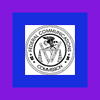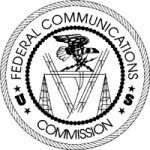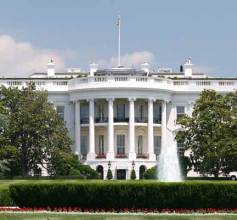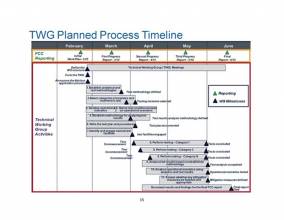
As previously announced, the Federal Communications Commission (FCC) International Bureau invited comment today on its proposal to vacate its January 2011 conditional waiver order permitting LightSquared Subsidiary LLC to establish a terrestrial wireless broadband network as a result of demonstrated interference to GPS signals and receivers.
As previously announced, the Federal Communications Commission (FCC) International Bureau invited comment today on its proposal to vacate its January 2011 conditional waiver order permitting LightSquared Subsidiary LLC to establish a terrestrial wireless broadband network as a result of demonstrated interference to GPS signals and receivers.
Public comments will be accepted until March 1, 2012.
The FCC also proposes to suspend indefinitely LightSquared’s underlying 2004 authorization permitting the company to build an ancillary terrestrial component (ATCs) made up of ground-based transmitters, which had originally been intended to supplement mobile satellite service (MSS).
Today’s public notice primarily seeks comment on a letter sent to FCC Chairman Julius Genachowski by the National Telecommunications and Information Administration (NTIA) yesterday (February 14, 2012) that said recent tests indicated that “no practical way” exists to mitigate potential interference posed by the high-powered ATCs.
“The NTIA Letter supplements the record established in this docket to date regarding the likelihood of interference from LightSquared’s planned terrestrial operations to GPS receivers and devices,” the FCC notice states. “These materials indicate that it is highly unlikely that LightSquared will, in any reasonable period of time, be able to satisfy the requirements of the Conditional Waiver Order for providing commercial ATC service in the 1525-1559 MHz band.”
The public notice includes a detailed recitation of the FCC’s version of the history leading up the 2011 conditional waiver order, noting that the authorizations at issue were granted nearly a decade ago.
That history recounts the incremental process by which an ancillary component supplementing an MSS system was turned into an opportunity for an all-terrestrial system in spectrum intended primarily for space-to-earth service.
In 2003, the Commission adopted rules permitting MSS licensees, after satisfying certain preconditions known as “gating criteria,” to integrate a limited ATC into their satellite networks. That authorization enabled MSS licensees to offer ancillary ground-based mobile services using the same spectrum resources already allocated to their MSS operations.
In 2004, the Bureau modified the MSS license now held by LightSquared to allow the predecessor company, SkyTerra, to offer MSS and an ATC service. In 2005, the FCC removed a limit it had imposed in the 2003 rules on the number of terrestrial base stations that an MSS/ATC provider would be permitted to deploy.
In a statement from LightSquared Chairman and CEO Sanjiv Ahuja today, the company responded to the FCC’s backtracking. "There can be no more devastating blow to private industry and confidence in the consistency of the FCC’s decision-making process," Ahuja said. "Unfortunately, with its action yesterday, the FCC has harmed not only LightSquared, but also the American public by making it impossible to build out a system that would meet public policy goals of successive administrations."
Nonetheless, he said, "We remain committed to finding a solution and believe that if all the parties have that same level of commitment, a solution can be found."
Reliance on GPSIC to Represent GPS Community
The FCC says it received and incorporated into each of those rules "extensive input" from the public and federal agencies. In particular, the agency highlighted the role played by the GPS Industry Council (GPSIC), which the FCC accepted as a surrogate for the entire GPS community despite the fact that the council memberhship included only a handful of GNSS manufacturers.
The notice states that FCC adopted recommendations offered by the GPSIC and NTIA to protect against harmful emissions from MSS/ATC operations into other bands, including the GPS frequency bands. “No party in those proceedings raised any issue of possible overload interference to GPS receivers,”
Concerns were raised about overload interference from ATC operations in the L-Band, where LightSquared is now operating, to Inmarsat mobile satellite terminals, but the FCC says it “fully resolved that issue” in its 2005 rulemaking order.
According to today’s public notice, the “GPS community” raised concerns about interference to GPS in July 10, 2009, in connection with the FCC consideration of an application to modify an MSS/ATC license now held by LightSquared. “A month later, the U.S. GPS Industry Council and LightSquared’s predecessor licensee submitted a joint letter to the Commission stating that those interference issues had been resolved,” says the FCC.
The agency’s history of the LightSquared GPS issue also glosses over a crucial part of the timeline: the agency’s brief comment period for LightSquared’s waiver request on ATC limits — which coincided with the busy 2010 Thanksgiving/Christmas holiday season. Instead, it jumps ahead to the January 2011 action by the International Bureau, noting that late in 2010, during the waiver proceeding on requirements for mobile devices, “the GPS community had raised for the first time concerns that LightSquared’s terrestrial base stations [that is, its cell towers] would cause widespread overload interference to GPS receivers and other GPS devices.”
In response to those newly expressed concerns about base stations, the conditional waiver order prohibited LightSquared from going forward and launching its competitive 4G LTE service until the interference concerns could be resolved. After a prolonged rounds of testing in 2011, congressional criticism of the process, a January 13 letter from the co-chairs of the National Space-Based Positioning, Navigation, and Timing (PNT) Executive Committee, and the finally yesterdays letter from the NTIA, the FCC has admitted that the interference concerns do not appear to be resolved.
Comments on the issue to date for the LightSquared GPS interference issue, IB Docket No. 11-109, can be found at the FCC International Bureau webpage.






